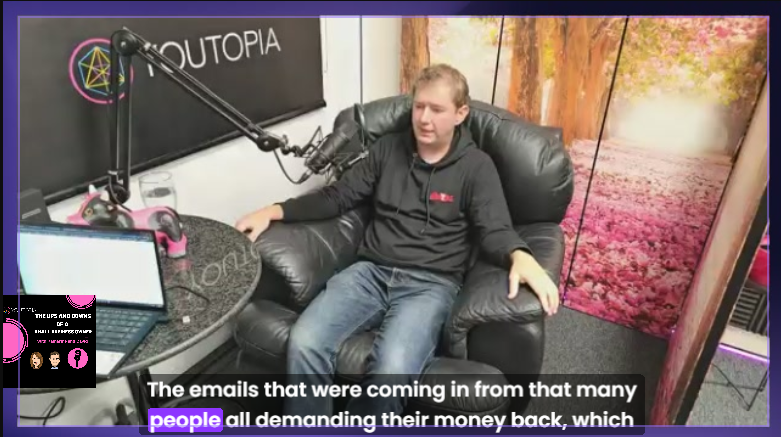September 21 Newsletter
Business Update

Is your small business struggling to make a decent profit? Here are six little known profit holes.
With the economy gearing up, there has never been a more essential time to take a good look at your overheads and cost of sales. Then, add into the mix the rising cost of labour, materials and shipping, and this exercise to examine your cost base may be the difference between your business having a good year or going under in the next. This article will look at the 6 most common profit holes that many small businesses may have.
Pricing: Has it kept up with your costs?
It’s been a difficult year, I hear you say. Are you in your head thinking that your customers and clients can’t swallow an increase? Well, think again - this is often the small voice of doubt in our minds. If Starbucks and Costa Coffee can afford to still charge eye-watering amounts for a slice of cake and a coffee throughout the pandemic, then you can look at your pricing.
Often, the biggest profit hole we see with our clients is around a poor pricing strategy. Such as:
- Are your sales team discounting too much in order to make the sale? Particularly for wholesale or bulk orders?
- Have you kept your prices static whilst your costs have increased?
- Are your prices in line with your cost base now, rather than when you were a much smaller business. For example, if your prices have not changed since you ran your business from the kitchen table, then it’s time to relook at your pricing. (And yes, we can help you with this, if needed.)
Do you have a revolving door of employees?
Hiring new staff members is expensive; recruitment agency costs, training costs and senior management time spent hiring and training. Losing good employees is even more expensive - both in terms of opportunity cost and also the hit on morale when a good person leaves. If you do have an employee turnover problem, it’s time to take a good look at how to increase the levels of employee engagement in your business. Being very blunt here, you may look into the mirror to see how you personally may be part of the problem.
Software costs: Have you had a good look to see what you’re really using?
Those £15 a month per user type subscriptions really do add up over time. How many user licences are you still paying for but don’t actually need? How many of those pieces of software that you decided to try out are you actually using? If you used all the features of your core software, how many other licences or subscriptions could you ditch? You may find that a good look at your software stack could yield a large amount of ‘money down the back of the sofa’ each month.
Suppliers: Are they taking the proverbial?
We’ve seen this in our business too. It is where we’ve worked with a supplier for years. Both we and they have got comfortable and complacency sets in. This cosiness was hiding the fact that we were not getting the service we required. Even worse, the prices we were paying were now out of step with the marketplace. Inertia and a desire to avoid conflict were stopping us from having a ‘state of the nation type’ conversation with the supplier.
In our experience, the first place to look at is your spending with marketing suppliers. Then your telephone and internet suppliers. What are they really delivering? Do they need a shakeup? Our advice to you is, if this resonates with you, have that conversation!
Not using automation (particularly in your financial processes)
The cloud revolution which we keep harping on about has been a game-changer for not just accountants. The digital tools out there will help your business cut out so much physical paperwork and manual entry. For example, if you are a small cafe or pub you can now get great phone apps that will allow customers to place their orders from the table. Thus, improving the efficiency of your operation and waiting staff.
Using bank rules, email rules and other types of automation in conjunction with software such as Dext (the new name for Receipt Bank) can reduce the time it takes to do your books or manage staff expenses. Why not have a chat with us to see where using apps and cloud-based software can take the grind out of your financial processes and systems?
Doing it yourself
How long does it take you to do stuff which should be outsourced or done by others in your business? This ‘doing it yourself’, particularly when it comes to things like bookkeeping or VAT returns, is often a false economy. Your time is much more valuable delighting customers and clients and running your business than puzzling over whether you can or can not claim VAT on your company car expenditure or that coffee with a client.
Using the right people and suppliers to free you up to do what you're best at is often a great way to generate more profit. It goes without saying that we are always happy to talk about whether we are a good home for your bookkeeping and other financial processes.
Partnering with the right accountant or bookkeeper can make a massive difference to your small business. If you don't believe us, here are two hard-hitting facts that back up this statement:
A UK survey of 1,500 small businesses found that those with an advisor work an average of 6 hours less every week than those without.
During the 2020 pandemic, businesses that thrived would consult professionals like accountants and bookkeepers before making important business decisions.
The question remains then, how do you find the right one for your business? Here are 3 steps to take.
Step 1: Know what your needs are
Many business owners tend to get stuck with an accountant that isn't the best fit for them because they don't really know what they need from them. Before you start your search, really think about your business. What systems and processes do you need help with? Do you just need compliance services or more of a business advisor who can support you as you grow?
Step 2: Know what you want from your accountant or advisor
Now you know what you need from your accountant (in terms of services), you should start thinking about what's most important to you. What industry do they need to be a specialist in? Do you prefer a certain size of business or client portfolio? Will you prefer to have face-to-face meetings or a lot of contact? Do you want an accountant who's savvy with cloud computing?
When you know exactly what you want from your accountant, beyond just the service, you will be far more successful in your search.
Step 3: Take the time to research and test
Finding the right fit takes time and patience. Think of it as a puzzle. Each piece you pick up is a candidate and you have to figure out where it goes and if it even fits.
Meet with the potential advisors that you're considering. Do they really understand the specifics of your business or industry? Do they seem proactive, not just in saving you money but helping you grow your business? Are they excited about working with you? What does your intuition tell you about them?
This is an incredibly important decision to make so take your time with it.
Now is the time to find the right advisor
It's going to be another difficult year for many small businesses, so this makes having the right accountant or bookkeeper even more important. Make sure to give yourself the best chance of success by finding the right one for your business now.
Accounting Update

Making Tax Digital - Income Tax Self Assessment
From April 2023 unincorporated businesses and landlords with total business or property income above £10,000 per year will need to keep digital records and make quarterly submissions..
What exactly must be recorded?
- The date of each transaction
- Category of each expense
- Trade or property business income relates to
- The amount or value
- Retail businesses can elect to record daily gross takings rather than every single transaction, if it is unreasonable to keep digital records of each sale
Can a spreadsheet be used?
Yes, however MTD regulations stipulate that there should be “digital links” that move the data around the accounting system. We would recommend using a system such as Xero instead.
What information is required to be submitted quarterly?
The quarterly submissions will be the totals for the quarter of:
- Sales income for each trade
- Purchases/expenses for each category (these are expected to be the same ones that are currently on the self-assessment tax returns
Can the accountant make changes in the final submission?
Any misallocations can be adjusted at the end of the period statement (EOPS). In this statement the accountant can also make any adjustments for capital allowances, losses, reliefs, disallowable expenses, transactions that have been missed or double-counted.
One EOPS will be required of each trade or property business by 31 January following the end of the tax year.
What will HMRC do with the quarterly data?
The quarterly submission will be used by HMRC to calculate an estimate of the business’s tax liability throughout the year, and that figure will be reflected back to the taxpayer. However the current timing of tax payments will not be changed (yet).
Please note that these regulations will be coming in, but they are only draft regulations at the moment. We expect the final regulations to be published this Autumn.
App of the month

The world's 1st Employee Engagement platform based on values... called Your FLOCK.
That identifies Your most engaged (and disengaged) employees or team members.
So YOU can take action.
Employee Engagement is key.
People working from home and remote working are not always able to feel that engaged with the company culture. Use Your FLOCK to flag those that aren't engaging with the company.
Your FLOCK Feedback
Ensure your remote team can give the feedback they need to. Whilst they work from home. With the weekly ability to check on how You can improve as a team.
Your Core Values
34% of people leave their job due to company culture misalignment. Working in line with Your core values helps You become more engaged and more productive.
Your FLOCK Activities
Specially built by our Learning and Development professionals and recommended by Machine Learning, our activities help increase employee engagement.
Team News
It’s official, we have a Rising Star in Youtopia! We are so pleased that Ben has been recognised and shortlisted in the top 10 Rising Stars in the UK as part of the Digital Accountancy Awards. We find out whether he has won in September and will let you know in our next newsletter :)
As ever, please feel free to pop in and see us in the office. We are in every day apart from ‘work from home’ Fridays! And, of course if there is anything you would like to discuss we are also available for video calls / phone calls (01908 751 972).
Keep safe and well,
Katherine, David, Ben and Michelle









